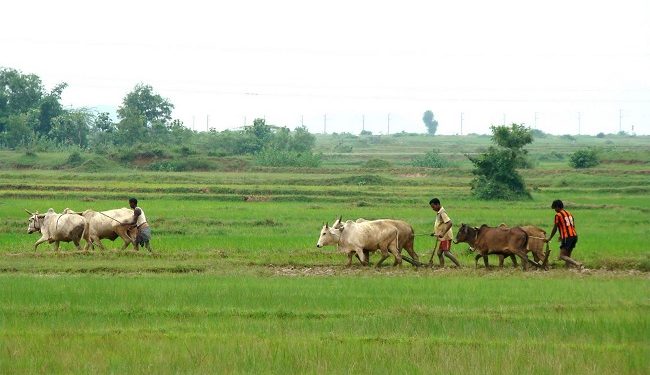Bhubaneswar: Panchanand Sahu, a farmer in Bansipalli village near Sambalpur, recently sowed paddy on his farmland and is expecting a good yield if everything goes well during the Kharif season. Like many others from the village, he sells paddy to the state under the Minimum Support Price (MSP) mechanism.
Sahu, who is already under pressure due to escalating cost of seeds, fertilisers, pesticides and other agricultural input costs, is of the view that the recent Rs 2 per kg hike in MSP will hardly have any positive effect on the lives of small and marginal farmers.
“While the input costs in agriculture are soaring, benefits for small and marginal farmers are reducing day by day. Our woes are compounded in case of share cropping. The proposed MSP rise of Rs 200 per quintal is hardly going to help the small farmers. We need a hike that will cater to an array of input costs to make it sustainable,” Sahu said.
Most of the farmers in his village sell their produce to the state government through local societies at an MSP of Rs 1,550 per quintal, which is slated to be Rs 1,750 per quintal. However, the state government has been batting to increase it to around Rs 2900 per quintal.
Speaking on the condition of anonymity, an official at the Krishi Vigyan Kendra (KVK) in the district said that while many farmers in the state are selling their produce at MSP, several others are deprived of the linkage and are forced to sell their produce at lower prices in nearby markets, thereby being deprived of government support.
Tikaram Sahu, another farmer from the Khurda district, said, “MSP is restricted to some crops. People who cultivate crops and vegetables that are not in the MSP ambit do not get state support in production assurance. They continue to struggle during hard times and are bound to go for distress sales.” A bureaucrat from the state agriculture department, however, said that more than 50 per cent of the farmers are now selling their crops under the MSP scheme compared to a decade back.
The Odisha government started decentralised procurement of paddy from 2003. As per the latest food and procurement policy 2017-18, now the societies at panchayat-level help to bring in paddy from the registered farmers to the Paddy Procurement Centres (PCC), which, in turn, goes to the rice mills. Subsequently, they are sent to Rice Receiving Centres (RRC), which are managed by e-governance. Eventually, the stocks are used for PDS and other purposes in state, while the surplus amount is sent to FCI for storage.






































